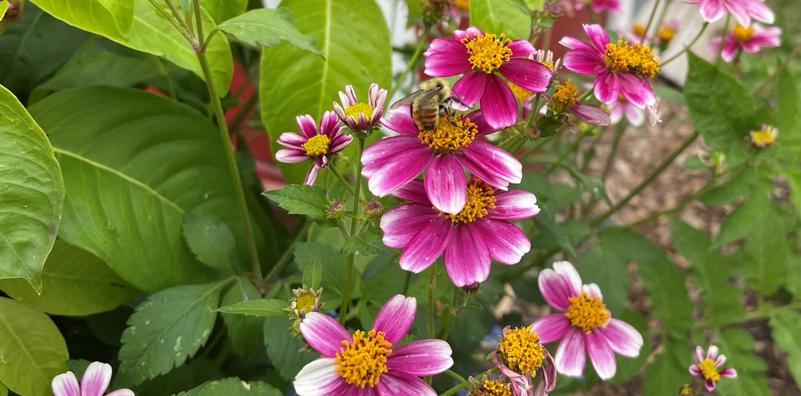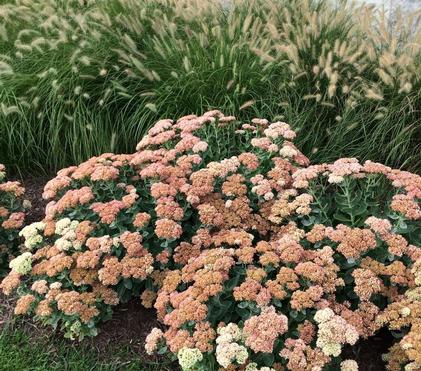Spring is Springing Along!
Protect Pollinators by Resisting the Urge to Clean Up Garden Beds
RESIST the urge to get out there and clean up the plant debris! It’s a very hard ask for some gardeners, but waiting until the days are reliably above 10 degrees (say, five in a row) to clean up your garden beds is incredibly important for the hard-working pollinators that literally help your garden grow.

Spring is Springing Along!
Spring officially arrived with the equinox on March 20. It is definitely so in the greenhouses as the floors and tables fill up with the ubiquitous Wallish pots. The brightly coloured QR tags form a long rainbow above the small bits of greenery that seem to get bigger every day. Most of the hanging baskets are now up high, set in place to grow into the burst of colour we all need after the long winter.
Outside, on the other hand, spring is coming in fits and starts. The Wallish staff are very aware of the chillier days as they move plants between the warm greenhouses and the shop. The carts must be covered to protect the tender plants, and the staff shiver in their short sleeves as they make the quick run up and down the hill. But the warm days are wonderful when the increasing heat of the sun becomes evident both indoors and out.
Your gardens too are starting to move into grow mode, although it will be a few weeks before the ground thaws enough for new growth to begin. In the meantime, you may start to see some insect movement on especially warm days. The aphid-busting ladybugs will start to crawl out from their winter shelter, and you may see a particularly ratty Milbert’s Tortoishell butterfly go by. Both have overwintered under the leaf debris, or in sheltered nooks and crannies in the plant material in your garden. There may be native bumblebees overwintering under mulch, in the ground, or in the pithy stems of plants such as raspberries, sunflowers, and elders.
RESIST the urge to get out there and clean up the plant debris! It’s a very hard ask for some gardeners, but waiting until nighttime temperatures remain consistently above 10 degrees toclean up your garden beds is incredibly important for the hard-working pollinators that literally help your garden grow.
Springtime in Alberta is unpredictable, and even in May (or June!) we can get cold weather and a dump of snow. We’ll complain and bundle up or go back inside our warm houses until it ends. Unfortunately, the beneficial insects can’t do that. There is no place for them to shelter if the garden has been stripped of last year’s plant matter. So, please, leave the leaves in the fall, and later into spring.
I have been doing this in my garden for several years now and have seen a significant increase in ladybugs and lacewings eating the aphids that show up on my plum tree without fail. The air around my flowers, and especially the tomato flowers, was in constant motion last summer.
Hundreds of bumblebees and other small pollinating bees, flies, and tiny beneficial wasps flew about doing what they do best.
Studies have shown that native bees are very effective pollinators, and even better, that some vegetables grow larger when pollinated by native bees. I had my best tomato crop ever last year, and the Romas were bigger than in past years. Anecdotal perhaps, but I’m going to continue to support pollinator habitat in my yard because it’s clearly making a difference.

